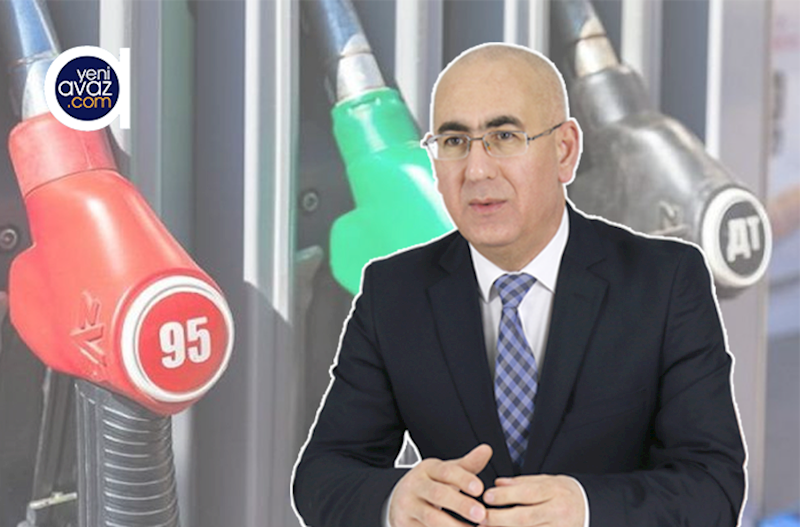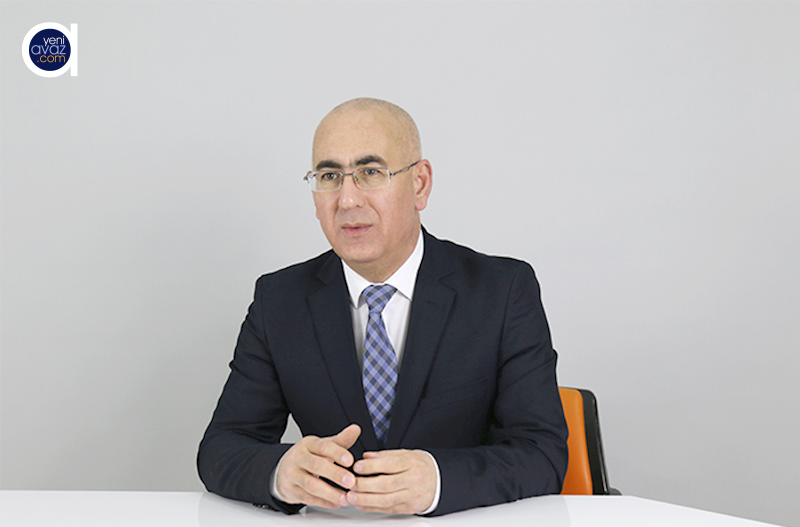
While gasoline and diesel prices in Azerbaijan will remain stable in 2025, there is a high probability that the situation will change in 2026.
This was stated by economist Allahverdi Aydin in an interview with Yeniavaz.com.
He stated that a sharp increase in state budget revenue from road tax is projected next year:
"This is one of the main factors that could directly impact fuel prices. For example, the current wholesale price of AI-92 gasoline is 1,289 manat 82 kopecks per ton. Adding a road tax of 26.2 manat, the retail price reaches 1,441 manat, or 1.10 manat per liter. By the end of this year, the budget is expected to receive 45.5 million manat from this tax. However, next year, this amount is projected to increase 2.9-fold to 131.2 million manat. The same applies to diesel fuel. Currently, the wholesale price of diesel fuel is 1,041 manat 21 kopecks per ton. Adding a road tax of 23.8 manat, the retail price will be 1,190 manat, or 1 manat per liter. By the end of this year, the road tax on diesel fuel will amount to 51.3 million manat, and next year, this figure will increase 3.3-fold to 169.7 million manat.
The economist notes that this increase is due not only to taxes levied on produced fuel but also on imported fuel:
"Revenue from the road tax on imported gasoline will increase 10.8-fold – from 2.3 million manat to 24.85 million manat." This means the state will receive more tax revenue from both domestic production and imports. This is possible due to both increased sales volumes and prices. It's worth noting that next year, production of both gasoline and diesel fuel in the country is expected to decline. This means that market supply will decrease, but tax revenues will increase sharply. This creates the basis for price increases, according to the laws of economics."

Allahverdi Aydin
So, can prices remain unchanged in this situation?
Allahverdi Aydin asserts that published official data points to higher gasoline and diesel prices next year:
"The amount of taxes that SOCAR and its subsidiaries will pay to the state budget next year will decrease by 180 million manat, or 9.6%, compared to the 2025 forecast. This is due to both a decrease in crude oil and gas production and an 11.9% decline in oil refining volumes. This means that SOCAR's revenues and taxes paid to the state will decline. Under these conditions, it appears difficult to maintain gasoline and diesel fuel prices at the current level. SOCAR will receive less revenue from both production and refining, while the volume of fuel sold on the domestic market will also decrease. This increases the cost of production. With reduced production, fixed costs—salaries, maintenance, equipment servicing, etc.—are spread across a smaller number of products, and as a result, the cost of each liter of fuel becomes higher. On the other hand, as we have already noted, the state plans to increase road tax revenues by approximately threefold next year. This means that the government expects increased revenue from this sector. SOCAR's overall revenue is declining, and the state intends to collect more taxes on fuel. This two-pronged pressure—both the production shortfall and the tax increase—makes it virtually impossible from an economic perspective to maintain price stability.
So, how much could gasoline and diesel fuel prices rise?
"As a result, a rise in gasoline and diesel fuel prices in 2026 is entirely possible. The scale of the increase will depend on the government's regulatory policy, SOCAR's internal resources, and the global oil market situation. Based on current indicators, a price increase of approximately 10-20 percent is possible. In this case, the price of AI-92 gasoline per liter could rise to at least 1.20-1.30 manat, and diesel fuel to 1.10-1.20 manat/"
Elnur Ali

 Tətbiqimizi yükləyə bilərsiniz
Tətbiqimizi yükləyə bilərsiniz

